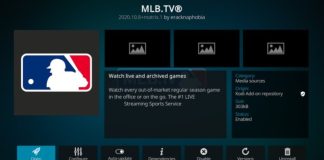
Speaking of academic writing, one should understand its limits, characteristics, features, and structure. The basis of academic writing is metalinguistic skills: the ability to read and understand the text, analyze it, read what is written critically, formulate individual, authorial and specific positions, and so on. Academic writing requires mastering sentence structure, using correct grammar and vocabulary. Let’s see what tips and online resources can help us with this.
Academic Writing Skills and Peculiarities
For most English-speaking countries, academic writing is something a student knows very well. Students at school are taught in which format they should write theses, how to form their own thoughts, while at university they begin deeper and more extensive work with the literature, train their critical thinking, look through feedback (reviews, comments) of the teachers and work with them, improving text and their own skills.
Experts identify three skills needed to successfully master the skills of academic writing:
- Academic literacy (reading, taking into account the purpose of expression, oral and written language, expression of opinions through tools of discussion and research).
- Information literacy (identification of information needs and search of information sources; their evaluation and processing).
- Intercultural literacy (knowledge of different cultures, including traditions and values).
Anyone who has written an academic text understands how complex this process is. First, one may search for new information on the topic, and then notice that they are already interested in something more specific, narrower than the range of interests in the beginning. The theme of the academic text is gradually formed. The actual idea search consists of five steps:
- Diving. Immerse yourself completely in the subject.
- Digestion. “Play” with information, look at it from different angles.
- Incubation. Put things off.
- Enlightenment. An idea finds you when you least expect it, whenever and wherever.
- Reality check. Ask yourself: how good is the idea? Does it solve problems? Does it fit the strategy?
Learn How to Write From Trusted Sources
This is a fairly generalized scheme of the process of creating ideas, which can be applied to any field of activity. Whenever writing academic papers, this pattern may somewhat vary from work to work. It’s always a good idea to consult the experts from GetGoodGrade especially if college students write their first paper or prepare for college admissions. There are also lots of different techniques for working with an academic text that involve intellectual processes like analysis, discussion, comparison, commentary, and so on.
There’s one good piece of news for students when it comes to learning how to write – it can be done without leaving their rooms, yielding a fairly sufficient result. One can take a few steps to optimize the experience of learning, yet, there’s nothing overly challenging in that. At the same time, learning to write papers properly can even be pretty fun, so it’s a great idea to start doing it now.
The culture of scientific language is more characterized by compliance with the rules and norms of literary language, in accordance with the scientific style. Thus, academic writing aims to teach you to express and justify your own ideas with a short, convincing, and conveniently organized scientific text. Textbooks on academic writing often offer a classification of essays based on the connection between content and logical order:
- essay describing the process (chronological order);
- an essay that reveals the causes and consequences (causal order);
- an essay that compares or contrasts objects (comparative
- order);
- essay-proof (logical distribution of ideas).
Tips on Getting Better at Writing
If you want to know how to develop written English, where to start, what resources and exercises are best to use in the process of improving skills, read our list below.
- Read a lot. Reading enriches the vocabulary, additionally filling your language with certain word constructions that are rarely used in oral communication.
- Try to put what you’ve read in writing. After reading an article in a magazine or journal, try to summarize the essence of what you have read.
- Work with texts. Try to convert 300-word text to 500-word text in writing.
- Practice answering the questions fully. Try not to put your words in one sentence – elaborate on your thoughts and ideas in more detail.
- Keep a diary. Record interesting daily events and thoughts throughout your day.
- Start blogging. The fear of a blank slate often stops us: we can not immediately decide what to write about. Write about what you know and what you can share with the world.
Handy Resources to Boost Your Writing
You can qualitatively improve your writing in a short time thanks to interesting resources and our advice. Here are some online resources you should check out:
- betterwritingskills.com
A resource that contains small articles with tips on how to improve your writing skills, including syntax and punctuation.
- com
An interesting resource for training writing skills: you will fill in the blanks in the text, arrange the words in the correct order and perform other exercises, many of which are based on the lyrics of popular songs.
- com
This portal offers you free access to video lessons supplemented with practical tasks that will help you train writing letters, correctly place punctuation marks, present information in the letter logically and consistently.
- daily-writing-prompt.com
A service for creative people, through which you can learn to express your thoughts freely in English. Try the “free writing” method: write down everything that comes to mind for a while, watch the videos of the portal, do the exercises.
You may also need a guide to navigating through different citations styles. There are lots of international styles of bibliographic references, the features of which, depending on the scope and specialty, are:
- Humanities and Social Sciences: Harvard Referencing Style, Chicago Style: Notes and Bibliography, APA Style, MLA Style;
- jurisprudence: OSCOLA Style, Austrian Guide to Legal Citation; medicine and natural and exact sciences: ACS Style, Vancouver Style, Chicago Style: Author-Date, AIP Style;
- Engineering and Electronics: IEEE Style.
Important Key To Success

Preparation and writing of a scientific text are very important processes. It all starts with a plan (based on a critical study of the available literature) and a vision of the problem. Then we have to make a proposal to solve the problem. Requirements for academic writing are as follows: originality, clarity, novelty. The structuring of the text is also important: the introduction, the main text with a statement of argument (with proper use of original texts and sources), and conclusions. It is also worth remembering that proper time management is the key to successful work. Follow our tips as well as various online resources and get your academic writing right!
Jessica Fender is an educator and content writer at Writeload. She specializes in content related to the integration of technology and education, with the goal of helping education professionals improve their work.













